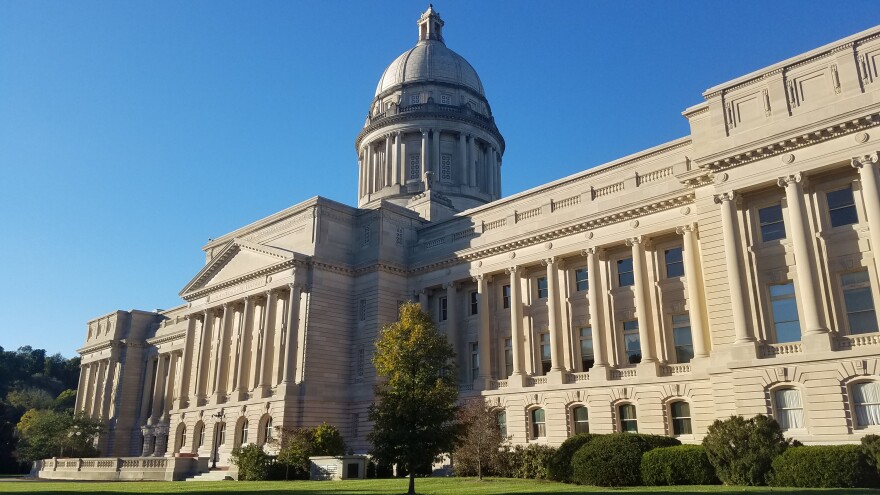Two Kentucky lawmakers say they will file a bill allowing student athletes to make money off their name, image and likeness (NIL) during next year’s legislative session.
The move comes amid increased pressure for elected officials and the NCAA to allow players to profit from their contributions to the multi-billion-dollar college athletics industry.
Gov. Andy Beshear issued an executive order last week allowing student athletes to do just that starting July 1—meaning players can profit off endorsements, sponsorships, autographs, appearances and other ventures.
Sen. Morgan McGarvey, a Democrat from Louisville, and Sen. Max Wise, a Republican from Campbellsville, want to go beyond the governor’s order and pass the policy into law.
McGarvey said they plan to file a bill during next year’s legislative session.
“This just gives the students the ability to have some control over their own name, image and likeness. This is not a guaranteed moneymaker for student athletes. This is just something that if they want to be able to market themselves for what they do, they’ll have that ability,” McGarvey said.
At least 19 states have passed some form of name, image, likeness legislation. The movement has picked up steam in recent months as states and universities fear getting left behind in the competition for college recruits.
And now theNCAA is poised to pass its own rules—ending the organization’s longstanding policy that players are amateurs, and thus shouldn’t be allowed to make money off their fame.
McGarvey, who has filed NIL legislation since 2019, said the issue became even clearer during the pandemic.
“You were taking college students on planes and buses and vans all over the country to play their sport in arenas where there were no fans, but there were television contracts and deals in place that benefited the universities and conferences,” McGarvey said.
McGarvey said he’s waiting to see how NIL policies play out in other states before filing the bill, which could be considered in January when lawmakers return for next year’s legislative session.
And as states enact a patchwork of NIL laws,pressure is increasing for Congress to pass national legislation.
McGarvey said while the NIL movement has focused on high-profile college athletes, the policy will allow players in niche college sports to earn too.
“They’ve worked really hard, they’ve gotten really good at their sport and there are people who follow them and who want to be able to go to a camp with them, to learn from what they do or even just to see some of the products they’re using to play their sport.
Kentucky is one of eight states with NIL laws that will go into effect July 1.





